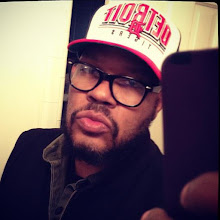On his 2015 breakout album, Beauty Behind the Madness, R&B Lothario the Weeknd performs a
duet with pop singer Lana Del Rey on the full-length’s penultimate track,
“Prisoner.”
A song about addictions, Del Rey’s verse plays out like an
encapsulation of her musical ideology in just four scant lines:
I think I’ve been in
Hollywood for too long
Cause I can feel my soul burning, feel it burning slow
But I would be nothing without the touch
Cause I can feel my soul burning, feel it burning slow
But I would be nothing without the touch
I feel the rush and
it’s amazing
Over the course of her still ascendant career, Del Rey has
carefully crafted a persona that stands well apart from the current crop of
female pop stars.
Where the likes of Beyonce, Nicki Minaj, Lauren
Mayberry of CHVRCHES, et al. make a decided point of projecting powerful,
determined women, Del Rey’s image is one of codependency; where her admitted
addiction to Hollywood and all its trappings, steel-hearted men and rapturous
bliss that’s always just out of reach is her driving force—even if she already
knows it’s just a pipe dream of diminishing returns that’s slowly burning her
from the inside out.
There’s a casually tossed off masochism
and latent submissiveness at play, one that surely makes many critics uncomfortable.
The epitome of the classic trope of the doomed American beauty who still revels
in the very trappings that hasten her downward spiral, Lana Del Rey’s music
casts a shadowy pall that simultaneously hurts so good for her millions of fans
around the world who obsess over every song lyric and Instagram post.
In reality, however, Del Rey is no
Marilyn Monroe. Far from a victim, the singer is in complete control of her
surroundings, unafraid to lay bare predilections some would surely prefer she left
unsaid (when asked why she’s depicted being choked in music videos during a 2014
interview with FADER, Del Rey’s response: “I like a little
hardcore love.”)
In a time when social phenomenon like
Ashley Madison and sugar baby/daddy culture are prominent in the public eye,
Del Rey’s musical modus operandi of perpetually chasing a particularly kind of
emotional high that comes from being desired and coddled is one many would
consider dubious at best.
As such, the singer has been vehemently
attacked as antifeminist, particularly after she was noted on record as calling
feminism “boring” in the same FADER
interview.
“For me, the issue of feminism is just
not an interesting concept. I’m more interested in, you know, SpaceX and Tesla,
what’s going to happen with our intergalactic possibilities,” she said.
“Whenever people bring up feminism, I’m like, god. I’m just not really that
interested.”
It’s a telling quote, one that
emphasizes the distinction between Lana Del Rey the artistic persona and Lana
Del Rey the human being. Having carefully crafted this character that
personifies every sullen teen and heartbroken romantic weeping over crushed
dreams, in reality she’s obsessing over technological breakthroughs and meeting
Elon Musk, which she
told Apple Beats 1 DJ Zane Lowe was “one of the best
days of my life.”
Given Del Rey’s rapidly ascendant
career, it’s amazing to remember that she first hit pop culture consciousness
on the mass scale with a 2012 appearance on Saturday
Night Live that was mercilessly
skewered, eliciting harsh words from such
public figures as Juliette Lewis, Eliza Dushku and disgraced newsman Brian
Williams.
In retrospect, her SNL showing feels like the ultimate long con, the perfect setup to
position herself as the beautiful loser, the comeback kid, the wallflower at
the party who still draws a lion’s share of the attention.
What the singer has done is carve out a
unique niche in the increasingly crowded musical landscape, eliciting desire,
controversy, and obsession: all components of a true star in 2015 (her recently
released album, Honeymoon, is already
generating some of the best reviews of her career and is poised to make a sizable
impression on the Billboard charts).
“The luxury we have as a younger
generation is being able to figure out where we want to go from here, which is
why I’ve said things like, 'I don’t focus on feminism, I focus on the future,'”
Del Rey explained during an interview
with actor James Franco earlier this year. “It’s not to say that there’s
not more to do in that area. I’ve gotten to witness through history the
evolution of so many movements and now I’m standing at the forefront of new
technological movements. I’m not undermining other issues. But I feel like
that’s obvious, like I shouldn’t even have to bring that up.”
Or as she even more succinctly put it
back in 2014: “My idea of a true feminist is a woman who feels free enough to
do whatever she wants.”


0 comments:
Post a Comment